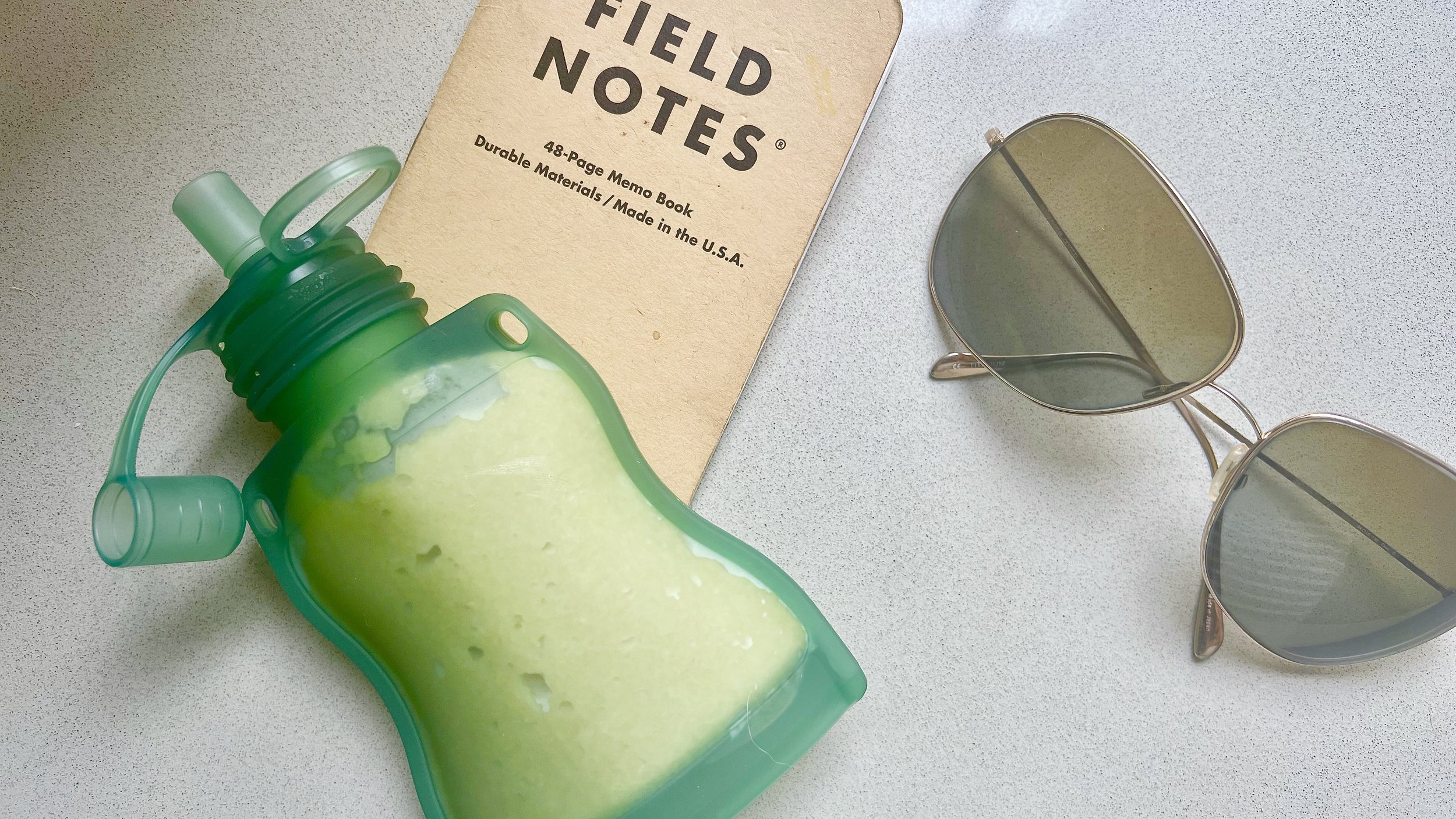Homemade Sports Gel
On the Run with Real Food Gels
GU’s, gels, and chews are convenient but may irritate the GI tract; they are expensive and have less desirable ingredients. It may sound like you need to be a food scientist to find alternatives to fuel your endurance training. Pantry items like organic rice, beets, and nutritional yeast are nutrient-dense and accessible for your goals. One of the benefits of using whole food, plant-based sources is that they are easy to digest and are packed with naturally occurring vitamins, minerals, and electrolytes for muscles to function optimally during the demands of endurance sports.
Kitchen Notes:
Use a favorite blender or food processor.
If you have leftovers, freeze them and add them to your next smoothie.
A reusable silicone pouch is your best bet for bringing these on your run; plastic baggies work too.
RECIPES
Double Beet Ginger Tempo
Beets have been shown to support stamina by boosting oxygen uptake during exercise. They’re sweet on their own but still a bit earthy, so we paired them with ginger (a natural anti-inflammatory that can help curb nausea) and banana for sweetness. It’s as simple as following the directions below.
Puree 1 medium steamed or roasted beet (peeled, about 1 cup) with ¼ teaspoon fresh ginger,
1 medium ripe banana (or ½ cup unsweetened applesauce), and 3/4 cup water.
Add more water, 1 tablespoon at a time, to achieve desired texture.
Pour into your pouch(es), and refrigerate until ready to use (up to two days).
Don’t Think Twice; It’s “All-rice” (Bob Dylan had a way with Words)
White rice is this homemade gel; it will give you a high glycemic index value for quick fuel for long-distance runs, nutritional yeast provides B vitamins for energy, and maple syrup with electrolytes and amino acids to prevent muscle cramps.
A 2010 British Journal of Nutrition study shows that nutritional yeast can protect against an exercise-induced dip in immunity.
As expected, the study found that cyclists who endured a high-intensity bout of exercise showed a corresponding decrease in circulating white blood cells.
But when the same athletes added just ¾ of a teaspoon of nutritional yeast per day to their diets and were tested again, they showed better immune function after the test than when they started.
1/2 cup cooked cooled rice, with 1/3 pure filtered water,
1 tablespoon coconut amino acids,
1 tablespoon nutritonal yeast, and 1 tablespoon maple syrup.
Add more water, 1 tablespoon at a time, to achieve desired texture.
Add 1 tablespoon at time of maple syrup to achieve desired sweetness.
Pour into your pouch(es), and refrigerate until ready to use (up to two days).
Apple Maca
Maca is a root known as an adaptogen, which means it gives your body the ability to adapt to or resist what’s happening in and around it; for example, anxiety, stress, and depression. Scientific evidence suggests that it can give you a boost in energy. It adds a hint of nutty flavor and provides a boost of energy.
Stir 1 teaspoon maca powder into 1 cup unsweetened applesauce.Add water, 1 tablespoon at a time, to achieve desired texture. Pour into your pouch(es), and refrigerate until ready to use (up to two days).
As athletes, we constantly search for the next great supplement or quick performance boost. If you haven’t found the right one that works for you or packaged gels leave you with digestive disturbances, try giving these gels before your next event. Our kitchen is our greatest asset, and natural food provides synergistic qualities verse supplementation— and in many cases, it can provide better health outcomes and impact the quality of our athletic performance when used strategically.
Always try new fuel types during shorter runs, anything less than a ho r. That way, you can try out the new fuel about halfway through and see how your body reacts without suffering in the long run.

